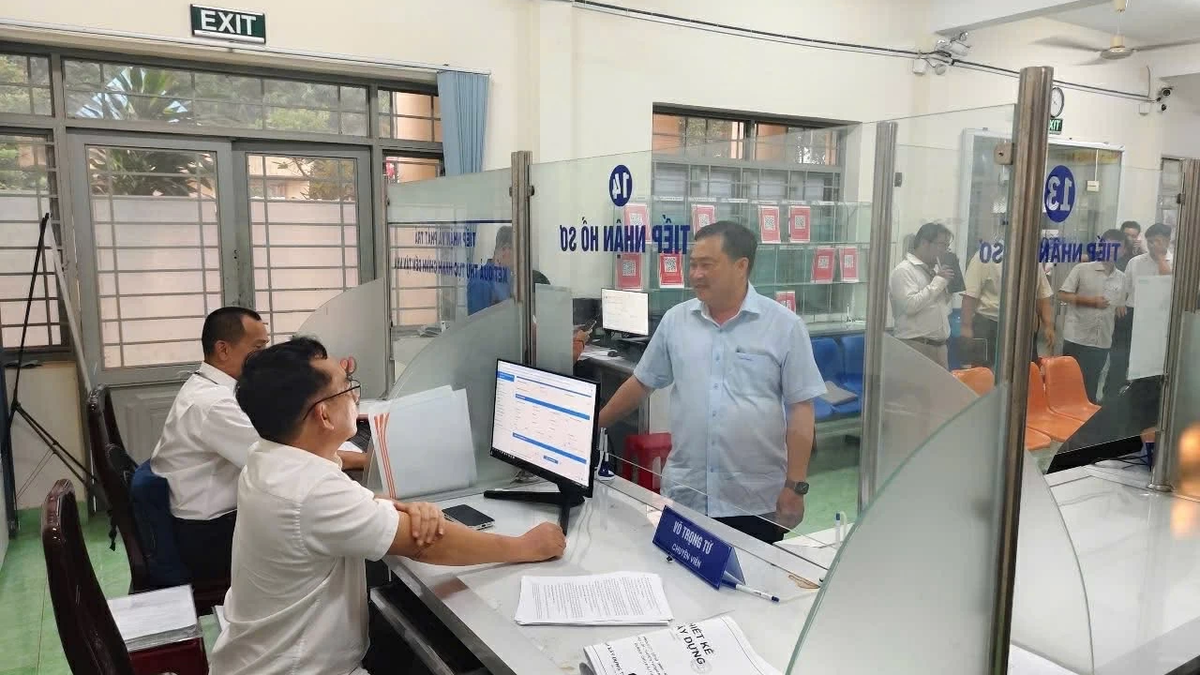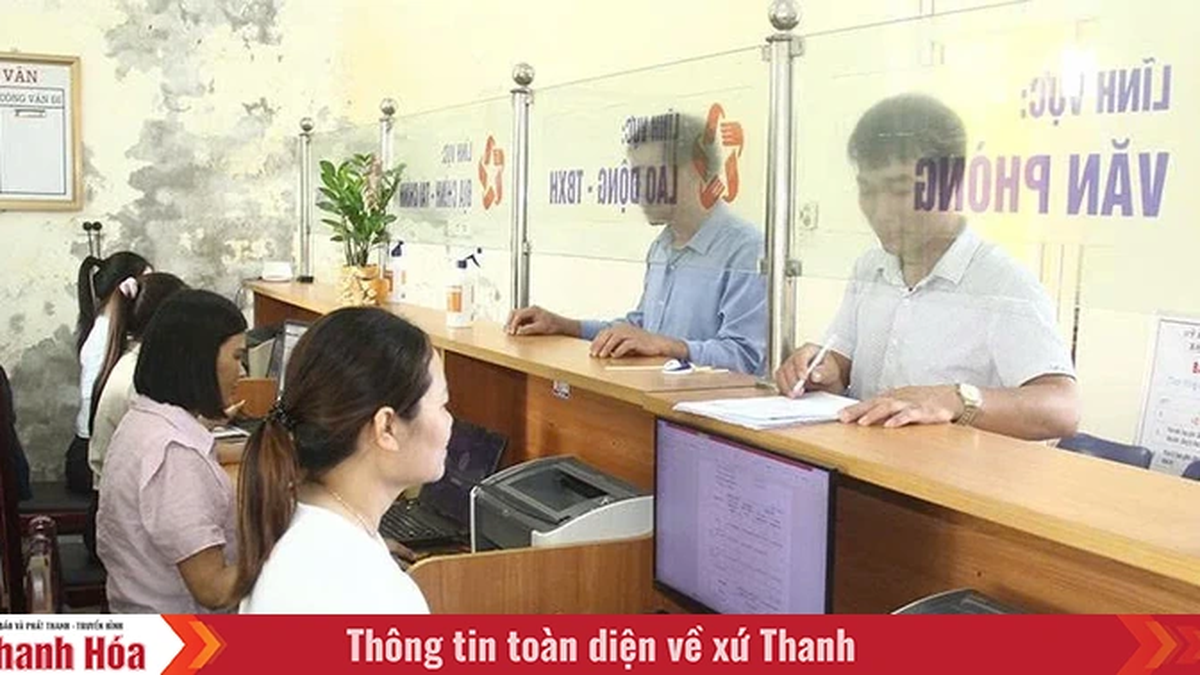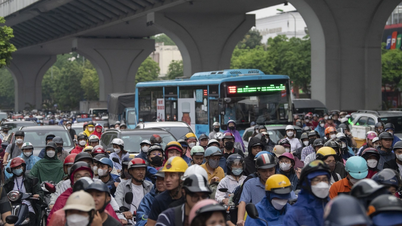ANTD.VN - Lawyer Nguyen Thanh Ha - Chairman of SBLaw Law Firm said that the e-commerce platform Temu must register to operate in Vietnam if it wants to expand its business.
 |
Lawyer Nguyen Thanh Ha talks with ANTĐ reporter about Temu's activities in Vietnam |
- The e-commerce platform Temu (China) has not registered to operate in Vietnam, but Vietnamese users can still download the app on their phones (in Vietnamese) or through the website (not yet in Vietnamese) to make purchases. So, is Temu violating Vietnamese law, sir? Or must it wait until it registers to operate in Vietnam (has a Vietnamese website, fulfills all tax and customs obligations...) to be able to sell products in Vietnam?
Lawyer Nguyen Thanh Ha: According to Article 67a of Decree 52/2013/ND-CP (supplemented in Clause 24, Article 1 of Decree 85/2021/ND-CP), the forms of operation and responsibilities of foreign traders and organizations with websites providing e-commerce services in Vietnam are as follows:
Foreign traders and organizations with websites providing e-commerce services in Vietnam are traders and organizations with one of the following forms of operation:
E-commerce website under Vietnamese domain name; E-commerce website with Vietnamese display language; E-commerce website with over 100,000 transactions from Vietnam in a year.
Foreign traders and organizations with websites providing e-commerce services in Vietnam as prescribed in Clause 1, Article 67a of Decree 52/2013/ND-CP (supplemented in Clause 24, Article 1 of Decree 85/2021/ND-CP) shall register for e-commerce activities as prescribed in Decree 52/2013/ND-CP and establish representative offices in Vietnam as prescribed by law or appoint their authorized representatives in Vietnam.
Thus, cross-border online retail platforms with Vietnamese domain names, Vietnamese display language, or with more than 100,000 transactions from Vietnam in a year must register their operations with the Ministry of Industry and Trade .
Temu, a subsidiary of PDD Holdings (China) - the group that owns the e-commerce site Pinduoduo - has not officially announced its entry into Vietnam. However, since the end of September, users have been able to access app stores on their phones to download the app and make purchases and payments on this platform with the Vietnamese version.
In case Temu falls under the provisions of Article 67a of Decree 52/2013/ND-CP (supplemented in Clause 24, Article 1 of Decree 85/2021/ND-CP), Temu will have to register its operations with the Ministry of Industry and Trade.
- Before Temu, Taobao, 1688... also operated similarly, so in your opinion, what should be done to control the quality and origin of goods, ensuring competition with businesses allowed to operate domestically such as promotion policies (compared to Shopee, Lazada, Tiki...)?
Lawyer Nguyen Thanh Ha: The fact that foreign e-commerce platforms such as Temu, Taobao, and 1688 operate in Vietnam without registration can create many challenges in terms of controlling product quality, product origin, and fair competition with domestic businesses such as Shopee, Lazada, and Tiki.
To solve these problems, we can apply some of the following measures:
First, control the quality and origin of goods. The State needs to require product registration and certification for products on e-commerce platforms. Foreign e-commerce platforms need to register their operations and comply with regulations on product quality, including providing certificates of origin for products.
The government may require these businesses to submit documents proving that their goods meet quality and safety standards as prescribed by Vietnamese regulations.
At the same time, authorities should strengthen inspection and supervision of suppliers of goods from abroad, especially products traded through e-commerce platforms. This may include regular and surprise inspections of imported shipments. If poor quality or unknown origin goods are detected, strict measures such as fines, suspension of operations or import bans should be taken.
Second, to ensure fair competition, foreign e-commerce platforms must comply with the same promotional regulations as domestic enterprises. In addition, when there are promotional programs or policies, it is necessary to provide clear information about products and prices. This helps consumers compare and choose products fairly.
The government can encourage domestic and foreign e-commerce platforms to cooperate to ensure the quality of goods and services and create a healthy competitive environment. This could include setting up forums for businesses to share experiences and quality management processes.
Finally, consumereducation and awareness should be strengthened. The development of strict management policies will help protect the interests of domestic consumers, support Vietnamese businesses to compete fairly, and promote the sustainable development of the e-commerce market.
- Temu cooperates with 2 Vietnamese shipping units, Ninja and Best Express, to deliver free of charge at the beginning. What are the responsibilities of these 2 shipping units to Vietnamese users, sir?
Attorney Nguyen Thanh Ha: When Temu cooperates with shipping units such as Ninja and Best Express to provide free shipping services to Vietnamese users, the responsibility of these shipping units will be very important in ensuring a positive shopping experience for consumers.
Ninja and Best Express must ensure the quality of shipping services, need to have an effective shipping management system to ensure that goods are delivered on time, according to the time committed to consumers.
In addition, there should be clear procedures in handling and packaging goods to ensure that they are not damaged during transportation.
Second, customer support: Ninja and Best Express need to set up customer support channels such as call centers, online chat or email, so that consumers can easily contact them when encountering problems during the delivery process.
Third, ensuring consumer rights: Ninja and Best Express must comply with Vietnamese laws related to consumer rights protection. This means that they must provide products and services according to quality standards, ensuring that customers have the right to compensation if the goods do not meet requirements.
These entities must commit to protecting consumers' personal information during transactions and transportation. The collection, storage and use of personal information must comply with regulations on personal data protection.
Thus, in the context of Temu cooperating with Ninja and Best Express to provide free delivery service, the responsibility of these shipping units towards consumers is huge.
They not only have to ensure on-time delivery and quality, but also need to provide information transparency, support customers, protect consumer rights and build brand reputation.
Fulfilling these responsibilities will not only help consumers have a positive shopping experience but also contribute to the sustainable development of both Temu and shipping units in the Vietnamese market.
- Currently, some cross-border social networking platforms also operate in Vietnam but do not have representative offices, so whenever there is a violation, the management agency only "recommends, suggests...", is the case with Temu, Taobao, 1688 similar if they do not register to operate according to regulations?
Lawyer Nguyen Thanh Ha: According to the provisions of Decree 52/2013/ND-CP and Decree 85/2021/ND-CP amending and supplementing a number of articles of Decree 52/2013/ND-CP on e-commerce, cross-border platforms wishing to operate legally in Vietnam must register their operations with the Ministry of Industry and Trade and comply with regulations on consumer protection, content management and tax obligations.
However, if they do not register, they will not be subject to Vietnamese law on sanctions such as fines or suspension of operations. Instead, the authorities can only use indirect measures such as applying pressure through domestic Internet service providers to limit bandwidth or suspend access.
Therefore, if e-commerce platforms such as Temu, Taobao, and 1688 do not comply with the registration of operations in Vietnam, management measures will also be limited to the level of "recommendations and suggestions", instead of direct sanctions.
- In your opinion, in cases like this, what is the responsibility of the Ministry of Industry and Trade?
Lawyer Nguyen Thanh Ha: To ensure that e-commerce activities take place in a transparent, fair manner and protect the rights of consumers, first of all, the Ministry of Industry and Trade needs to coordinate with relevant agencies to issue legal documents regulating cross-border e-commerce activities. This includes clearly defining the minimum requirements that foreign e-commerce platforms must meet before operating in Vietnam.
Second, an effective monitoring system needs to be developed to monitor the performance of cross-border e-commerce platforms. This system could include performance indicators, import volumes, and consumer satisfaction.
The Ministry of Industry and Trade should conduct periodic studies to assess the impact of foreign e-commerce platforms on the domestic market, including the impact on domestic businesses and consumers; Establish a process to check the quality and origin of goods before they are introduced into the Vietnamese market.
This could include requiring e-commerce platforms to provide certification of product quality and origin. The ministry should set up teams to inspect goods quality at border gates and distribution centers to ensure that imported goods meet Vietnam’s quality standards.
Third, the Ministry of Industry and Trade should establish cooperative relationships with competent authorities of other countries to effectively manage cross-border e-commerce activities. In addition, the Ministry of Industry and Trade should develop a quick response mechanism to handle issues arising from cross-border e-commerce activities, such as consumer complaints about substandard or unknown origin goods.
There is a need for a dedicated team to monitor, analyze and handle emergency situations in the e-commerce sector, ensuring that issues are resolved effectively and promptly.
The Ministry of Industry and Trade has a great responsibility in managing cross-border e-commerce activities in Vietnam, as in the case of Temu. Establishing a clear legal framework, closely monitoring activities, protecting consumer rights, international cooperation, and promptly resolving arising issues will create a healthy and sustainable e-commerce environment.
Being proactive and effective in these activities not only protects the interests of consumers but also creates conditions for domestic enterprises to develop and compete fairly in the modern e-commerce environment.
Regarding the Temu platform that is selling goods in Vietnam, Mr. Nguyen Sinh Nhat Tan said: "The Ministry of Industry and Trade is implementing a project to combat counterfeit and fake goods and protect consumers in e-commerce. The Ministry has also assigned the General Department of Market Management to closely monitor this issue." At the same time, the Department of E-commerce and Digital Economy was assigned to review and assess the impact.
Source: https://www.anninhthudo.vn/temu-ban-hang-vao-viet-nam-khong-phep-trach-nhiem-co-quan-quan-ly-the-nao-post593643.antd





































































































Comment (0)